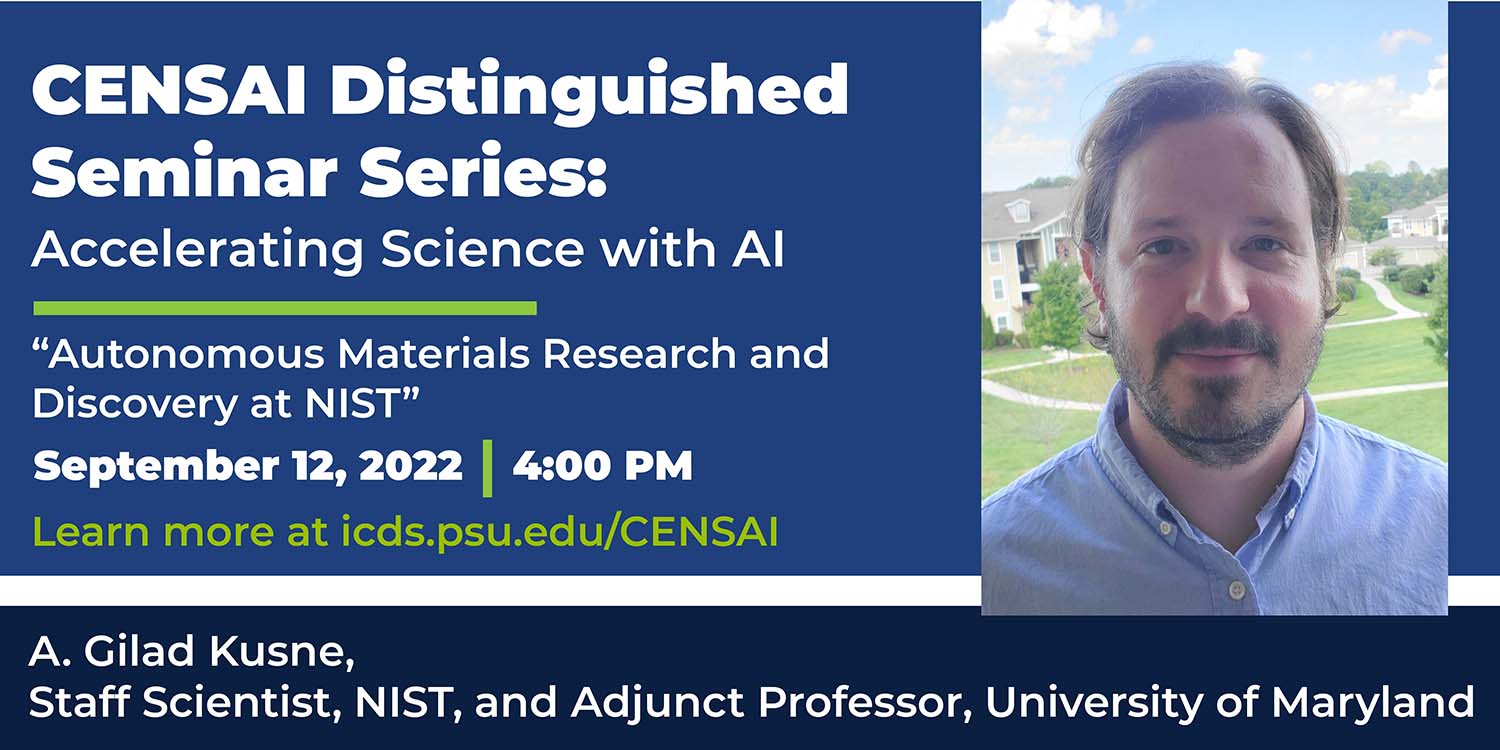
Distinguished AI Seminar: Autonomous Materials Research and Discovery at NIST
Date: Monday, September 12
Time: 4:00 p.m.
Location: Online
The Center for Artificial Intelligence Foundations and Scientific Applications (CENSAI) is pleased to welcome Dr. A. Gilad Kusne, staff scientist with the National Institute of Standards and Technology, in our monthly distinguished speakers series. Dr. Kusne will present on his work related to autonomous materials research.
Autonomous Materials Research and Discovery at NIST
Abstract: The last few decades have seen significant advancements in materials research tools, allowing scientists to rapidly synthesize and characterize large numbers of samples – a major step toward high-throughput materials discovery. Autonomous research systems take the next step, placing synthesis and characterization under control of machine learning. For such systems, machine learning controls experiment design, execution, and analysis, thus accelerating knowledge capture while also reducing the burden on experts. Furthermore, physical knowledge can be built into the machine learning, reducing the expertise needed by users, with the promise of eventually democratizing science. In this talk I will discuss autonomous systems being developed at NIST with a particular focus on autonomous control over user facility measurement systems for materials characterization, exploration and discovery.
Bio: A. Gilad Kusne received his B.S., M.S., and Ph.D. degrees from Carnegie Mellon University. He is a Staff Scientist with the National Institute of Standards and Technology (NIST), Gaithersburg, Maryland, an adjunct professor with the University of Maryland, and a Fellow of the American Physical Society. His research is part of the White House’s Materials Genome Initiative at NIST, a project which aims to accelerate the discovery and optimization of advanced materials. He leads the machine learning team of an international, cross-disciplinary effort building autonomous research systems, with the goal of advancing solid state, soft, and biological materials. For these systems, machine learning performs experiment design, execution (in the lab and in silico), and analysis. For his work, he has been awarded the NIST Bronze Award (highest NIST award) and APS Fellow. He is also the lead founder and organizer of the annual Machine Learning for Materials Research Bootcamp and Workshop—educating next generation and mid-career material scientists in machine learning.
